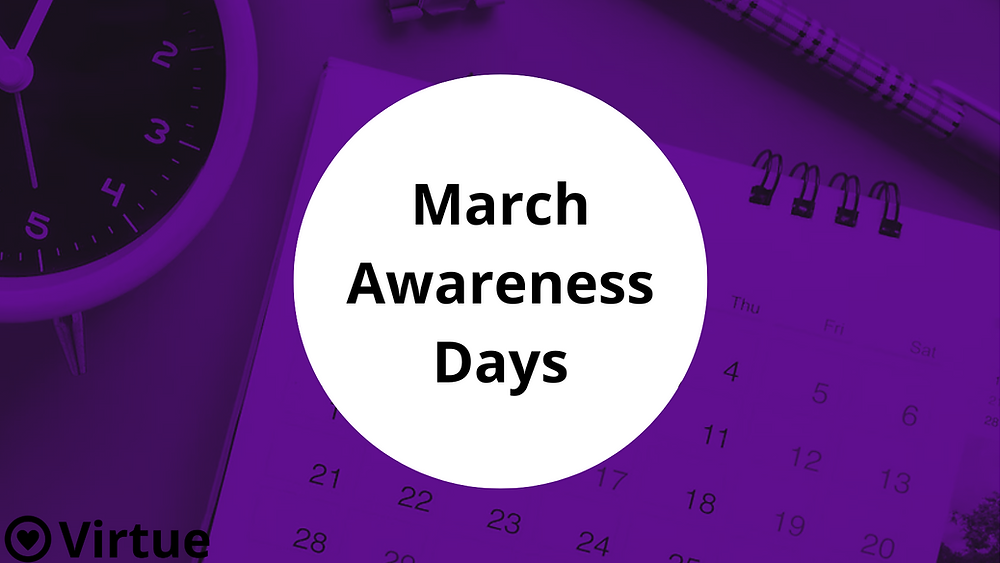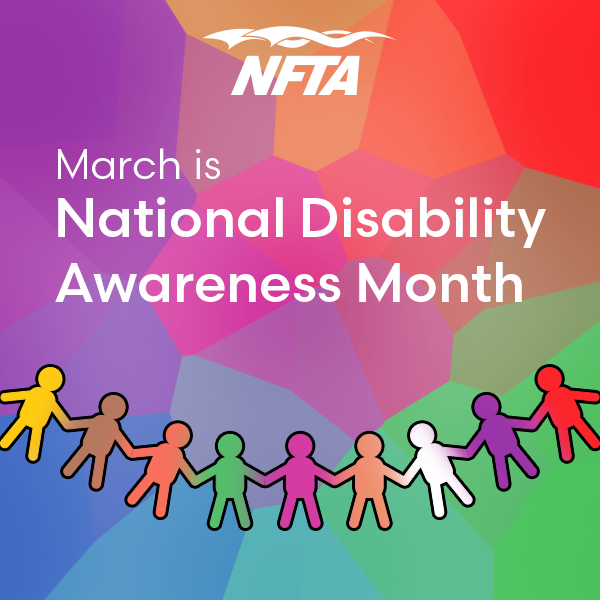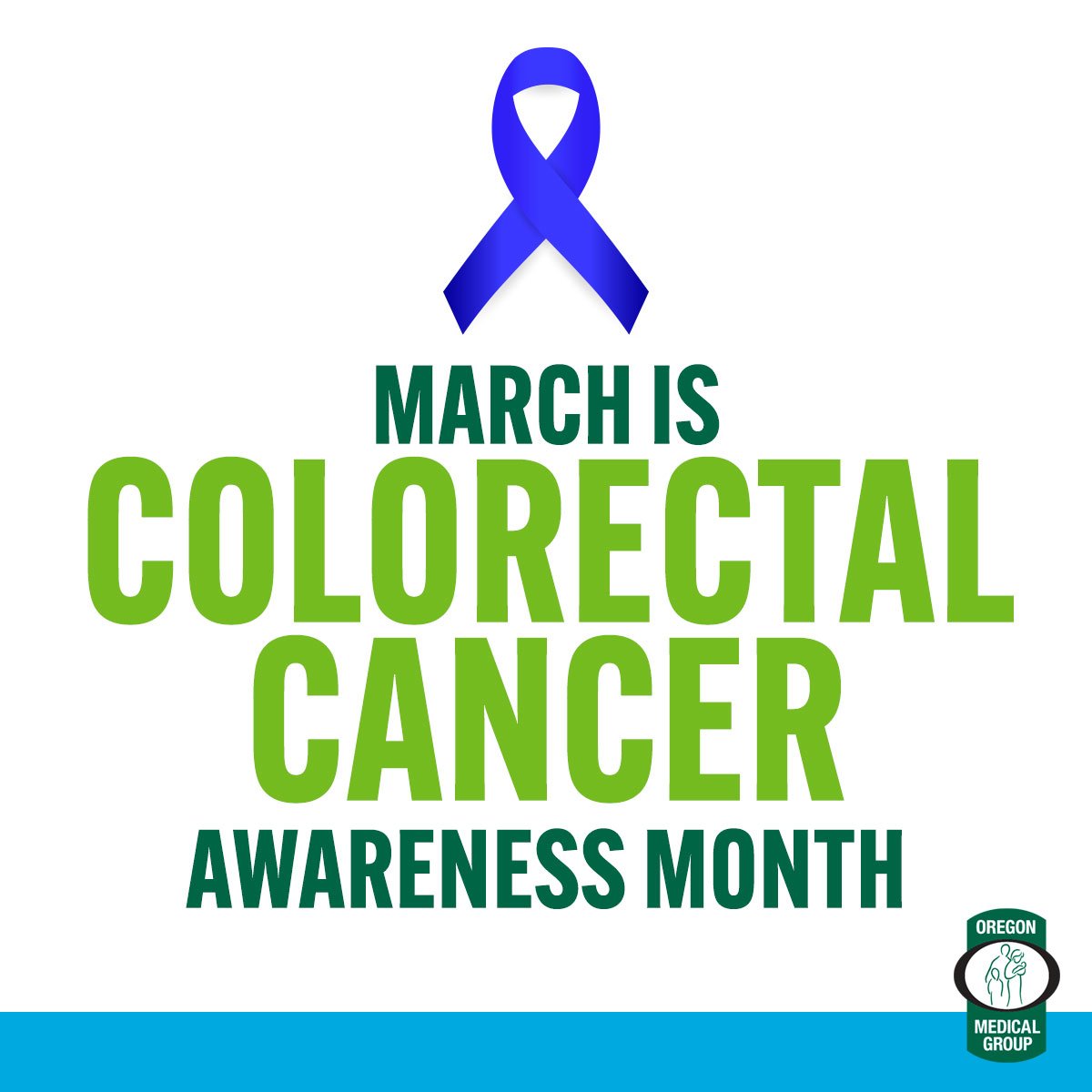What Is March Awareness Month? Expert Insights

March is recognized as a significant month for raising awareness about various health, social, and environmental issues. As we delve into the intricacies of March Awareness Month, it’s essential to understand the diverse range of topics that are highlighted during this period. From colorectal cancer and kidney disease to multiple sclerosis and cerebral palsy, March serves as a platform for educating the public about these critical concerns.
The origins of March Awareness Month can be attributed to the collective efforts of healthcare organizations, advocacy groups, and individuals who strive to make a positive impact on society. By designating a specific month to raise awareness about particular issues, these entities aim to foster a sense of community, promote education, and encourage support for those affected by these conditions. For instance, the Colorectal Cancer Alliance and the National Kidney Foundation are two prominent organizations that leverage March as an opportunity to disseminate vital information and resources to the public.
Key Points
- March is recognized as Colorectal Cancer Awareness Month, with approximately 151,000 new cases diagnosed in the United States each year.
- Kidney disease affects over 37 million people in the United States, with March serving as a critical month for promoting awareness and education.
- Multiple sclerosis, a chronic and often disabling disease, affects around 2.8 million people worldwide, with March being an essential month for raising awareness and supporting research.
- Cerebral palsy, a neurological disorder affecting movement, muscle tone, and coordination, is highlighted during March to promote understanding and inclusion.
- By supporting awareness initiatives and educating oneself about these conditions, individuals can contribute to creating a more compassionate and informed society.
Colorectal Cancer Awareness Month

Colorectal cancer is a significant health concern, with the American Cancer Society estimating that there will be over 151,000 new cases diagnosed in the United States in 2023. March serves as a critical month for promoting awareness about this disease, with a focus on early detection, prevention, and treatment options. The Colorectal Cancer Alliance and other organizations work tirelessly to provide resources, support, and educational materials to those affected by the disease.
Risk Factors and Prevention
Understanding the risk factors associated with colorectal cancer is crucial for prevention. A family history of the disease, a diet low in fiber and high in red meat, and a lack of physical activity can all contribute to an increased risk. Additionally, certain genetic mutations, such as Lynch syndrome, can also play a role. By maintaining a healthy lifestyle, undergoing regular screenings, and being aware of potential symptoms, individuals can reduce their risk of developing colorectal cancer.
| Colorectal Cancer Statistics | Data |
|---|---|
| New Cases (2023 Estimate) | 151,000 |
| Deaths (2023 Estimate) | 52,000 |
| 5-Year Survival Rate (2012-2018) | 64.9% |

Kidney Disease Awareness Month

Kidney disease is a pervasive health issue, affecting over 37 million people in the United States. March serves as a critical month for raising awareness about this condition, with a focus on prevention, early detection, and treatment options. The National Kidney Foundation and other organizations work to provide resources, support, and educational materials to those affected by the disease.
Risk Factors and Prevention
Understanding the risk factors associated with kidney disease is crucial for prevention. Diabetes, high blood pressure, and a family history of the disease can all contribute to an increased risk. Additionally, certain lifestyle factors, such as a diet high in sodium and sugar, can also play a role. By maintaining a healthy lifestyle, undergoing regular screenings, and being aware of potential symptoms, individuals can reduce their risk of developing kidney disease.
Multiple Sclerosis Awareness Month
Multiple sclerosis is a chronic and often disabling disease, affecting around 2.8 million people worldwide. March serves as an essential month for raising awareness about this condition, with a focus on education, research, and support. The National Multiple Sclerosis Society and other organizations work tirelessly to provide resources, support, and educational materials to those affected by the disease.
Risk Factors and Prevention
Understanding the risk factors associated with multiple sclerosis is crucial for prevention. A family history of the disease, certain genetic mutations, and environmental factors, such as vitamin D deficiency, can all contribute to an increased risk. Additionally, certain lifestyle factors, such as a diet low in omega-3 fatty acids, can also play a role. By maintaining a healthy lifestyle, undergoing regular screenings, and being aware of potential symptoms, individuals can reduce their risk of developing multiple sclerosis.
What are the common symptoms of colorectal cancer?
+Common symptoms of colorectal cancer include blood in the stool, abdominal pain, and changes in bowel habits. However, many people with colorectal cancer do not experience any symptoms in the early stages, making regular screenings essential for early detection.
How can I reduce my risk of developing kidney disease?
+Reducing your risk of developing kidney disease involves maintaining a healthy lifestyle, including a balanced diet, regular exercise, and managing conditions like diabetes and high blood pressure. Additionally, avoiding certain lifestyle factors, such as smoking and excessive alcohol consumption, can also help reduce your risk.
What are the common symptoms of multiple sclerosis?
+Common symptoms of multiple sclerosis include numbness or weakness in the limbs, vision problems, and difficulty with coordination and balance. However, the symptoms of multiple sclerosis can vary widely from person to person, making it essential to undergo regular screenings and consult with a healthcare professional for proper diagnosis and treatment.
As we reflect on the significance of March Awareness Month, it’s essential to recognize the importance of education, awareness, and support in addressing these critical health concerns. By working together to promote awareness and provide resources, we can empower individuals to take control of their health and make informed decisions about their well-being. As a society, it’s our collective responsibility to foster a culture of compassion, understanding, and inclusion, ensuring that everyone has access to the information and support they need to thrive.



